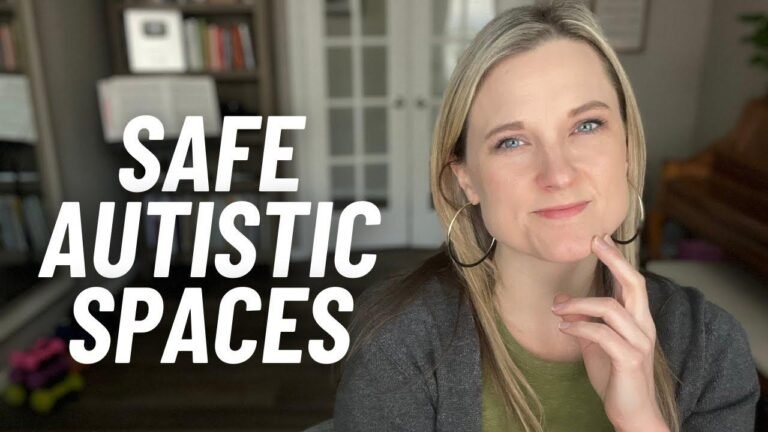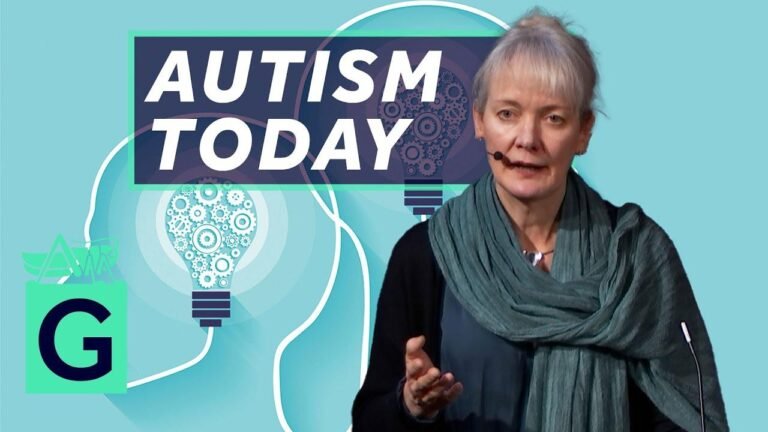Exploring Love Languages for Individuals with Autism
- Autistic Love Languages are unique, and showing affection may look different.
- Understanding your partner’s love language is crucial in neurodiverse relationships.
- Physical intimacy for autistic people may not be touchy-feely, but that doesn’t mean they don’t love you.
- Masking is common for autistic people, but unmasking is a sign of love and acceptance.
- Gift giving is a way for autistic people to show love, even if it’s not touchy-feely.
Autistic people often struggle with showing and receiving affection in ways that may be different from neurotypical individuals. Let’s delve into the concept of autistic love languages and how to support loved ones who are autistic. Welcome, my friend, to a discussion about understanding and navigating romantic relationships with autistic individuals.
🧠 Neurodiverse Relationships: Identifying Love Language Issues
Autistic people have a strong sense of right and wrong, which can lead to identifying and solving problems before they arise. This logical, problem-solving approach may be seen as a strength in neurodiverse relationships, but it can also lead to misunderstandings between neurotypical and autistic individuals.
Key Issues in Neurodiverse Relationships
| Problem | Perception |
|---|---|
| Identifying and solving problems | Autistic individuals may spot issues before they arise, but their insight may be perceived as picking at small problems by neurotypical partners. |
| Communication differences | Autistic individuals may struggle to navigate social interactions and non-verbal cues, leading to misunderstandings in romantic relationships. |
“Although it may seem like a partner is criticizing or problem-solving at your expense, it’s actually a sign of love and affection.”
👥 Info Dumping and Neurodivergent Communication Styles
Info dumping is a language from an autistic person, where they passionately explain or talk about a topic at great length, often with little relevance or connection to the listener’s interests. It’s important to understand and appreciate this communication style, as it is a way for autistic individuals to share their passions and connect with others.
Info Dumping: A Form of Expression
| Characteristics | Description |
|---|---|
| Passionate sharing | Autistic individuals tend to focus on topics that deeply interest them, often sharing a wealth of information without considering its relevance to the listener. |
| Connection through sharing | For autistic individuals, info dumping is a way to establish connections and share their unique perspectives, even if the listener may not fully comprehend or relate to the information presented. |
"Educating yourself about your autistic partner’s communication style, such as info dumping, can significantly improve your relationship dynamics and foster better understanding."
🧩 Parallel Play and Alone Time in Neurodiverse Relationships
Autistic individuals often require periods of alone time to regulate themselves, similar to the concept of parallel play in children. Understanding and respecting this need can lead to healthier interactions and a deeper appreciation of individual differences in neurodiverse relationships.
Parallel Play: A Neurodiverse Connection
| Significance | Interpretation |
|---|---|
| Time for self-regulation | Autistic individuals find solace and restoration through moments of solitude or parallel play, allowing them to unwind and regulate their emotions. |
| Respect for individual needs | Neurotypical partners can support their autistic loved ones by acknowledging and respecting their need for alone time and self-regulation. |
"Accepting and embracing the concept of parallel play can lead to greater harmony and understanding in neurodiverse relationships."
🤗 Navigating Physical Intimacy in Neurodiverse Relationships
Autistic and neurotypical individuals may have different preferences and interpretations of physical intimacy, leading to potential misunderstandings and misrecognition of loving gestures. Understanding these differences is crucial for fostering a healthy and fulfilling romantic connection.
Different Love Languages and Sexual Preferences
| Perspectives | Implications |
|---|---|
| Emotional bonding | Autistic individuals, like demisexuals, often seek emotional connection as a prerequisite for engaging in physical intimacy. |
| Sensory sensitivities | Autistic people may have sensory sensitivities that influence their responses to physical touch and affectionate gestures. |
"Recognizing and respecting each other’s physical and emotional boundaries is vital for establishing a positive and fulfilling intimate connection in neurodiverse relationships."
🎁 Gift-Giving as a Form of Love and Affection
Autistic individuals may express their love and affection through thoughtful and detailed gift-giving, focusing on specific details and meaningful gestures to express their emotions. Understanding and appreciating these unique expressions of love is essential for fostering genuine connections in relationships.
Thoughtful Gestures and Love Languages
| Significance | Appreciation |
|---|---|
| Detailed observations | Autistic partners often invest time and effort into selecting meaningful gifts that reflect their loved ones’ interests and preferences. |
| Personalized expressions of love | Autistic individuals use gift-giving as a way to communicate their feelings and emotions, emphasizing the significance of each thoughtful gesture. |
"Embracing the intricacies of gift-giving in autistic love languages can lead to deeper emotional connections and a greater understanding of your partner’s unique expressions of affection."
🤝 Unmasking and Authentic Expression in Neurodiverse Relationships
The concept of masking in autistic individuals refers to the act of concealing one’s true self to fit into social norms and expectations. Recognizing and accepting an autistic partner’s unmasked, authentic self is a powerful expression of love and respect within neurodiverse relationships.
Unmasking and Acceptance
| Authenticity and respect | Impact on relationships |
|---|---|
| Honoring the true self | Encouraging an autistic partner to unmask and express their authentic self fosters a deeper sense of trust and understanding in romantic relationships. |
| Embracing individual differences | Accepting and appreciating an autistic partner’s unique traits and behaviors demonstrates genuine love and affection. |
"Creating a supportive and accepting environment for unmasking allows for a deeper emotional connection and a genuine expression of love within neurodiverse relationships."
In conclusion, understanding and embracing autistic love languages is essential for nurturing healthy and fulfilling relationships between neurotypical and autistic individuals. By respecting each other’s unique communication styles, emotional boundaries, and expressions of affection, partners can foster deeper connections and mutual understanding in their romantic relationships. For more expert tips and strategies on thriving in neurodiverse relationships, explore my upcoming feature on navigating romantic connections between neurotypical and autistic partners.




![Analysis of the Hyper-Autistic Warrior – [Dragon’s Dogma 2]](https://raadstest.com/wp-content/uploads/2024/03/WP-20240307173655-905142-768x432.jpg)


